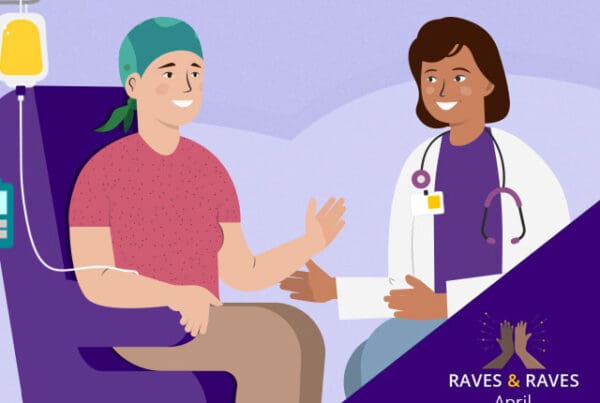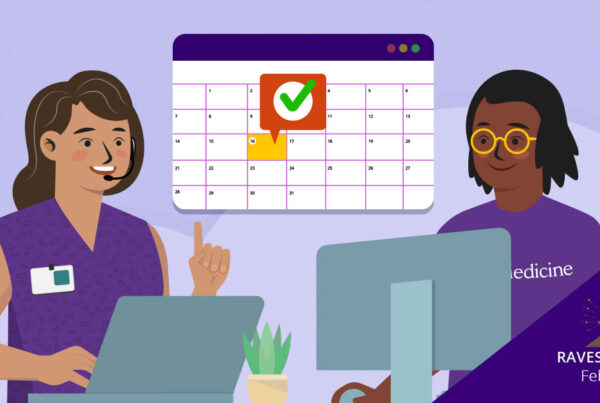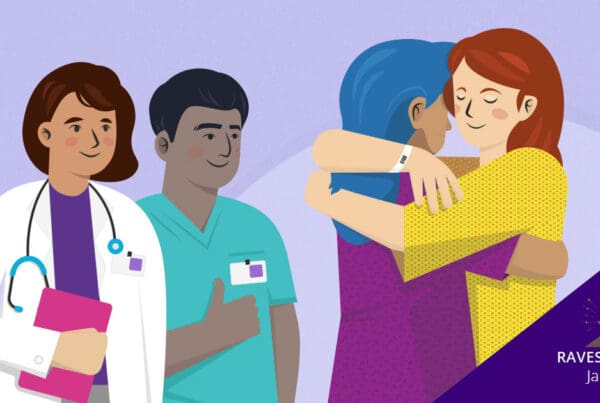My mother always said that she had the best possible healthcare at Harborview.
She loved her primary care doctor at the Senior Care Clinic. One day, she saw him because her knee hurt. In response to his question about when the pain started, she told him a story from her life as a teenager in Haiti where she was born. And he leaned forward to listen to her. At this and other times, she always felt heard.
After she was diagnosed with multiple myeloma, my mother had a similar relationship with her oncologist. They talked about why she refused to use a walker and what was most important: her faith, her kids and her independence. This led to shared decisions about her care, up to knowing when the time was right to stop treatments.
Being with my mother at these visits helped me see the healing power of honoring patients’ stories and made me proud of the care we deliver at Harborview.
***
In Haiti, I was the youngest of six children; my father worked as a lawyer (sometimes for no fee), and my mother was a school teacher. When I was three years old, my mother decided that she could better support the family by working in New York during the summer, and she moved there permanently four years later.
My brothers and sisters followed her to New York, and I joined them when I was 13. After I graduated from Fordham University in 1984 with a major in sociology, I was attracted to a simple, communal life devoted to social justice and spirituality. I also wanted to get some distance from my family. Going to Seattle as a Jesuit volunteer was my ticket.
Two years later, my personal story had evolved to the point that I felt comfortable coming out as a lesbian, and six years later, my entire family was here (so much for distance!). I was also working on a master’s degree in international health at the UW School of Public Health.
In 1991, Haitian President Jean-Bertrand Aristide was overthrown in a military coup, and this led to a wave of refugees being resettled in Seattle. When I was asked by Public Health to help with their resettlement because I spoke Haitian Creole, I thought, “That can’t be hard.” Little did I know that it takes more than a shared language to build trusting relationships. I was not very good at first, but I was fascinated by the work of interpreters: how we help people connect with one another and what a difference we make. Back then, providing an interpreter was seen as something “nice” to do for a patient. But now, we know that interpreters are essential to the safety and quality of care for patients with communications limitations.
I started with UW Medicine in 1998 as manager for Interpreter Services at UW Medical Center and have been Director of Interpreter Services at Harborview since 2002.
Our team has benefited from the pioneering work in community outreach of Drs. Carey Jackson and Ellie Graham, the co-founders of Community House Calls. To build the trusting relationships that were missing from my first experience as an interpreter, we regularly attend events and meetings in the Ethiopian, Latino, Vietnamese, Cambodian and Somali local communities. We also offer cultural consultations, care coordination and navigation. Our EthnoMed.org website provides culturally-tailored patient education and provider education materials.
At this time of political tension in our country and world, we know that Harborview is not immune. In 2015, Paul Hayes asked me to help start Project Peace in response to anti-Muslim bigotry directed at staff. As chair of the Equity, Diversity and Inclusion Committee, I continue to explore how we can promote cross-cultural competency and social justice.
I am fortunate to have a leadership team in Interpreter Services that is smart and full of heart. And I am grateful to our staff for helping our patients tell their stories.
Just as my mother found healing in sharing her stories with her care team, we are making Harborview a place of healing for people from around the world.


